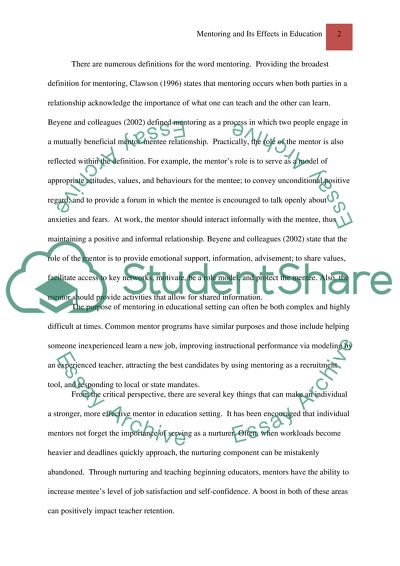Cite this document
(“Effect of mentoring in education Essay Example | Topics and Well Written Essays - 1500 words”, n.d.)
Retrieved from https://studentshare.org/education/1510051-effect-of-mentoring-in-education
Retrieved from https://studentshare.org/education/1510051-effect-of-mentoring-in-education
(Effect of Mentoring in Education Essay Example | Topics and Well Written Essays - 1500 Words)
https://studentshare.org/education/1510051-effect-of-mentoring-in-education.
https://studentshare.org/education/1510051-effect-of-mentoring-in-education.
“Effect of Mentoring in Education Essay Example | Topics and Well Written Essays - 1500 Words”, n.d. https://studentshare.org/education/1510051-effect-of-mentoring-in-education.


